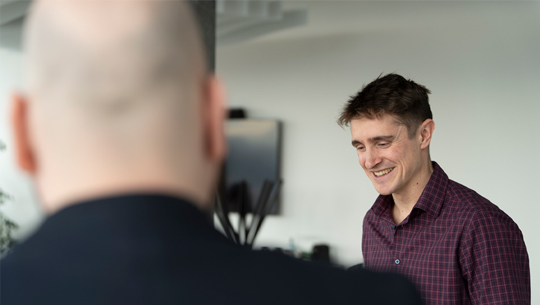There’s an abundance of highly educated young professionals working in the life sciences industry today, all of whom bring a much-valued fresh perspective to the field. We spoke to a number of Biopôle members to understand how and why attracting new talent and ideas is crucial to the development of the life sciences.
The life sciences job market across the globe has been tight over the past few years, with a high proportion of unfilled positions and a scarcity of qualified workers, according to a recent study by Cushman & Wakefield. This was reflected in the results of Biopôle’s 2022 Community Survey, in which companies responded that access to talent was their biggest challenge. But it’s not all gloom and doom; there are a number of different ways to recruit fresh talent and expertise into the life sciences, which might be right under your nose. The vibrant Biopôle campus, which houses a combination of start-ups, multinationals and academic departments, brings together a wide variety of highly educated, talented people – thus creating a plethora of opportunities to collaborate across disciplines and spheres of influence. So much the better, as interdisciplinary collaboration has been proven to increase innovation, creativity, problem-solving and employee engagement: by working with people who have a different age profile, educational background and/or skill set, companies are able to draw on fresh insights and produce new ideas of their own. Indeed, a paper for the Harvard Business Review outlined the merits of ‘shadow boards’ – these teams, made up of younger, creative, non-executive employees, advise leaders on key decisions and strategies. When trialled by Gucci, this initiative produced innovative ideas that helped the company drive digital growth.
The positive effects of this sort of collaboration and exchange can be seen throughout the Biopôle community, where life sciences academics regularly work alongside and impart their expertise to industry stakeholders, and vice versa. In recognition of the fact that life sciences academics can bring much- valued new eyes and skills to the life sciences industry, Biopôle has introduced a number of initiatives in the past year. All of these are aimed at encouraging talented graduates and postgraduates to either share their insights with or pursue careers in industry at Biopôle companies. Here’s a taste of how these initiatives have played out thus far, demonstrating the value of a fresh perspective.



